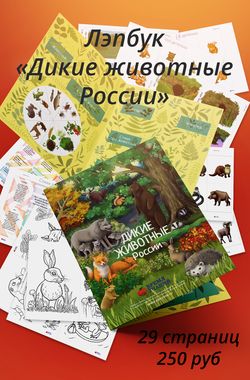План интегрированного урока в 10-ом классе по теме
“ Современные представления об идеальном обществе”.
Учитель английского языка. Рябчикова Т.С.
При участии учителя обществознания .
Задачи урока:
Образовательная: формирование речевой коммуникации учащихся через аудирование.
Воспитательная: формирование у учащихся научного мировоззрения. нравственных качеств личности, взглядов и убеждений.
З. Развивающая: развитие умений систематизировать и интерпретировать информацию для выражения собственного мнения.
Тип урока:
Интегрированный.
Методы и приемы работы учеников:
Извлечение необходимой информации через аудирование. Диалогическая и монологическая речь.
Средства наглядности, источники информации:
Интерактивная доска. Книга Томаса Мора ” Утопия”. Альтернативный учебник ' 0pportunities”. Дополнительный материал из Интернета.
Открытый урок
Развитие навыков аудирования и говорения в рамках интегрированного урока
“Cовременные представления об идеальном обществе”
The plan of the lesson.
The aim of the lesson is to practise skills of getting new information through listening and developing skills of speaking.
Bcтупительное слово о поисках идеального общества и значении работы Томаса Мора “Утопия” учителя обществознания. Он создал предварительную мотивацию для вовлечения учащихся в разговор об идеальном обществе. Рассказал о значении учения Т. Мора для его современников и для дальнейшего развития идей коммунизма и социализма.
Now summarising this information tell me please why More's work is still relevant.
Student l- T. More was the first who spoke about total equality.
Student 2- He predicted that labour should be pleasant for people.
Student 3- T. More underlined that there would be no crime in his society.... Thank you. You are perfectly right.
To continue speaking about an ideal society I want you to look at these expressions and to match them with their meaning.
Students are matching words with their meaning.
Let's look at the picture of More's society .Give answers to the following questions:
Try to find any differences between poor and rich people.
What leisure activities are citizens fond of?
Is there any punishment?
How democratic is the society?
Listen to the story about Sir More's "Utopia". Check your predictions. Were you right? What haven't you mentioned?
Listen to the story again and find the proof of the main ideas about this society.
Student 1- I can't see any differences between poor and rich people as all of them wear just the same clothes.
Student 2- What's more they live in the same houses and do the same kind of work. Student 3- As far as I remember they eat the same food and can choose any pastime they like Thank you.
Tomas More's work was highly esteemed by all the humanists of Europe in More's time, grew popular with the socialists of the 19-th century and is still studied nowadays. The previous year in the course of English literature we studied More's work a bit and students were asked to make up the model of there own ideal society.
Today Slava, the student of the 11-th grade, is ready to share his ideas. But before it I'd like to ask Nastya to help the teacher of Society with English as she has to give her opinion about Slava's work. Slava, you are welcome.
Firstly, Slava shows the model of the ideal society and speaks about it in brief. He says that from his point of view it is impossible to speak about certain model, he can only think about the ways to improve the society.
Thank you, Slava. Have you got any questions to Slava?
Student 1- What do you mean by saying that an individual works only for his survival?
Student 2- Will your society take part in any wars?
Student 3- Sorry, what about unemployment? Will it exist?
Student 4-Tell us please if women are equally treated.
Student 5-Will members of your society indulge in anything? Gambling? ...
We ask the teacher of Society his opinion about Slava's model of society. He highly appreciated Slava's ideas.
So, look at the board. Are Tomas More's and Slava's ideas of the ideal society the same?
Now you should choose what society you would like to live in and why.
Two pairs will prepare a dialogue, they have to persuade their partner that their choice is better. You have only four minutes. Don't forget to be active and polite. Expressions from "Functional Language" will help you.
We are ready to listen to monologues and a dialogue. Students show prepared task.
You see tastes differ and I'm sure that each of you has their thoughts of ideal society.
Consequently at home you will write a composition "My ideal society". All "speakers" today will get excellent marks.
I want to thank everybody for the lesson.
When I was in the 10th grade I created a model of my own perfect society. It was based on the principles of the democratic society. My government is based on the following ideas which are:
My society is ruled by a presidium of 7 people.
It has a Judicial branch that controls the work of the private companies and solves their contradictions with the government,
The laws are accepted by special ministries or on the referendum
The presidium is elected by people according to the test scores and the future electoral program
Labour is needed to survive, only effective private companies work for the government
Based on the private property , private companies establish governmental marketing by suggesting their projects
Has a developed system of education
People receive money according to their efficiency, their skills are tested often.
Also the principles of the Utopian society are presented for you. It is made to help you to compare both concepts
Now you can see the graphical interpretation of my plan. I will try to explain it you.. Well, to start with... I am just kidding I don't want you to understand it because it seems to be a great mess. But look at the diagram: it looks great, it contains different boxes, arrows and weird words, also pretty much everything is connecting. It is beautiful. Well, the main problem with it is that it is absolutely lame. It will not work ever, and I will try to explain you why.
In this slide you can see the reasons why my and More's perfect societies won't work. The problems are:
Historical features of the society are not considered.
The government exists as a remote system, independent from others.
The government has no developed plan and cannot solve and balance its internal problems.
According to these problems we can make a hypothesis that no mechanical plan can solve these problems, something else should be suggested in order to create something constructive.
To discover this new way of thinking we should glance at the world around us: there are a lot of conflicts going on in our world, the countries are closing, different governments are developing
and testing weapons, the leaders of different nations arrange meetings with each other, but it really doesn't have any effect on the fate of these nations.
So this is what I suggest:
Different countries have vast experiences in the different areas. These experiences need to be shared.
In my opinion the countries should create a "specialist and authority exchange". If the country has a problem the specialists and the governmental officials would be invited from the countries, that managed to overcome such a kind of a problem . Also every country should create a special department of the specialists, who will be sent to the foreign countries.
But these will be possible if and only if the countries trust each other and provide all the help possible



